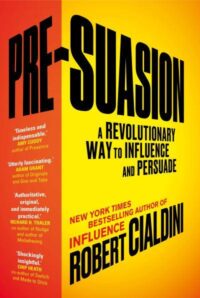Reading Notes for:


WHAT’S ALREADY IN THEM
Imagine yourself as a regional school superintendent in the following predicament: your district is applying for a large federal grant
You have to provide evidence that the high schools under your supervision have made recent progress in readying women students for STEM (science, technology, engineering, and mathematics)
There is a societal stereotype, which many girls believe, that women aren’t as good at math as men are.
Research has demonstrated that almost anything you do that causes women to focus up front on this belief reduces their math performance in several ways. It increases their anxiety, which interferes with their ability to remember what they know; it diverts their attention from the test itself,
Fortunately, there is an easy, research-based fix for each.
- Assign test takers to a room on the basis of a relevant factor (their gender), not an irrelevant one (the first letter of their last names). Why? When girls are taking a math test in the same room as boys, they are more likely to be reminded of the mathematics-and-gender stereotype.
- Don’t assign teachers randomly to monitor the tests. Assign them tactically, on the basis of gender and teaching specialty. Girls’ monitors should be female science and mathematics teachers. Why? Evidence that other women have defied the stereotype deflates the stereotype’s impact.
- Eliminate the ten-minute period when students collect their thoughts about how to respond to the test items likely to give them trouble, because to focus on the daunting aspects of the task will undercut their success. Instead, ask the girls to pick a personal value of importance to them (such as maintaining relationships with friends or helping others) and to write down why they find that value important. Why? This sort of “self-affirmation” procedure directs initial attention to an interpersonal strength and reduces the effects of threatening stereotypes.
- Do not instruct students to record their gender at the start of the math exam, as that will likely remind female test takers of the mathematics-and-gender stereotype. In its place, ask students to record their year in school, which in your sample would always be “graduating senior.” Why? In keeping with the power of mere attention shifts, that change will supplant a pre-suasive focus on a perceived academic shortcoming with a pre-suasive focus on a perceived academic accomplishment.
Of all the demonstrations of how steering attention from one feature of a person’s inner geography to another can affect performance, I have a clear favorite: besides the belief that women don’t do well in math, there is the belief that Asians do. Prior to a mathematics test, researchers asked some Asian American women students to record their gender; others were asked to record their ethnicity. Compared with a sample of Asian American women students who weren’t asked to record either characteristic, those who were reminded of their gender scored worse, while those reminded of their ethnicity scored better.

